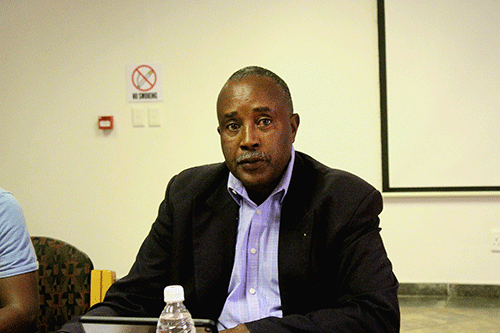Charles Katjivirue
The Swanu party on 27 September 2023 celebrated its 64th Anniversary of existence and this occasion calls for revisiting its raison de tre for its existence and its relevance in the current political dispensation.
The idea to give birth to modern national politics that culminated in the formation of Swanu was conceived by late Toivo ya Toivo and late Adv. Fanuel Kozonguizi who were based in South Africa, Cape Town. On account of circumstances both could not be present at the inaugural formation of Swanu in September 1959.
Ya Toivo was placed under
solitary confinement in Ovamboland under Chief Johannes Kambonde of the Ondonga while Kozonguizi was sent as a reinforcement to the United Nations in January 1959 at the request of Hosea Kutako.
Swanu was therefore formed as an umbrella consisting of SWAPA (South West Africa Progressive Association, a student body), OPO (Ovamboland Peoples Organisation) and Herero Chief Council respectively led by Uatja Kaukuetu, Sam Nujoma, Louis Nelengani, Hosea Kutako (represented by Aron Kapere and Issaskar Kambatuku) and other individuals such as Fritz Gariseb, Jeremia Jagger. Its formation reflected the multi-national character and dimension of the Namibian people and this fact was testified by Kurt Dalheim (editor of the Allgemeine Zeitung) as a witness of South African government at the International Court of Justice at the Hague in 1966.
Three months after its formation, Swanu was involved in the demonstration of forceful removal from the Old Location to the present day Katutura township (December 1959); opposition to the Odendaal Plan (1968), Vorster Advisory Council (1972) Turnhalle Constitutional Conference (1975), Second-Tier Representative Authorities (1980), rejection of State Council (1982), Multi-Party Conference (1983) and the 1985-1989 Interim Government.
It was Swanu and the legendary leadership that included. Gerson Veii, Sondag Kangueehi, 1 Kuzeeko Kangueehi, Vekuii Rukoro, Imbu Uirab, Jefta Tjozongoro which frustrated racist Pretoria regime’s neo-colonial designs to a point of fatigue.
When Swanu appeared on the political scene, the political geometry that was characterised by petitions and deputations from Windhoek-Pretoria-New York, it took the struggle to other fora such as to Afro-Asian Peoples Solidarity Organisation (AAPSO), OAU, Peoples Republic of China, Scandinavian countries. It was the first organisation from Namibia to take our struggle to Cuba in January 1966.
Internally, we were at the receiving end of apartheid brutality and savagery as epitomized by the imprisonment of the first ever political prisoner at notorious Robben Island, late Gerson Veii, ex-president of Swanu in 1966-1972 for having queried the whereabout of Jason Mutumbulwa, Natanael Maxuilili and Johny ya Otto on 4 December 1966. The unification of the patriotic, progressive anti-colonial forces under the SWANLIF, National Convention (NC), Namibia National Convention (NNC), Namibia National Front (NNF), Ai//Gams Groupings of 17 organisations in May 1986 were some of the pre-occupation>
The disunity and polarisation in Namibia must be viewed against recognition of Swapo as a sole authentic representative of the Namibian people in a situation which was by definition a product of many and DTA for having been part and parcel of Pretoria’s neo-colonial agenda of balkanization of Namibia into 11+ ethnic homelands.
Swanu is still relevant because the decolonisation process that ushered in the Namibian independence did not translate in the delivery of land to the dispossessed; the existence of homogenous ideological society is an anathema to Swanu which it cannot stomach; erosion of comradeship and solidarity; resurgence of ethnic and hegemonic party political consideration in a country which by definition is a product of many; lack of progressive ideology which is supposed to guide policies, etc. etc.
In the post-colonial dispensation, Swanu inter alia has single-handedly contributed to the existence of progressive NBC airtime allocation to political parties during elections; has made submissions to Presidential Commission on Health in 2012, Basic Education Curriculum, Ancestral Land Commission has obtained concurrence with government which paved the way for establishing instrumental in convincing government to establish the Welwitchia Sovereign Wealth Fund; as well as the Genocide Memorial Museum.
As a successor to the victim of the genocide, Swanu rejects the reckless and irresponsible utterance being attributed to President Geingob on comparing apartheid with Genocide. We demand immediate retraction and apology.
• Charles Katjivirue is Swanu member.


